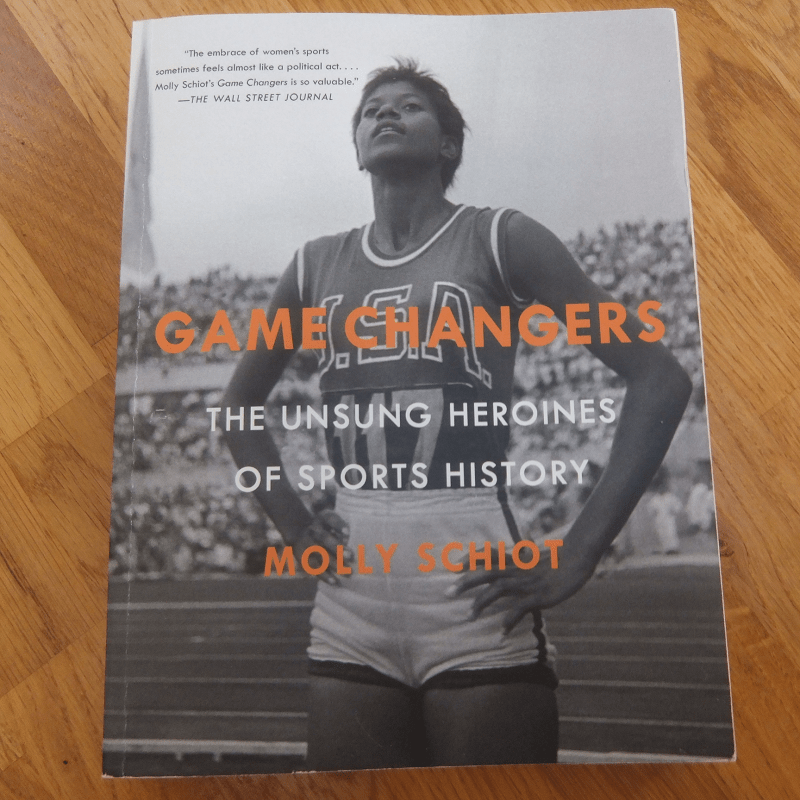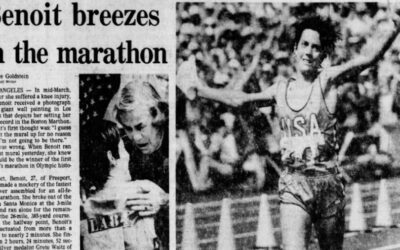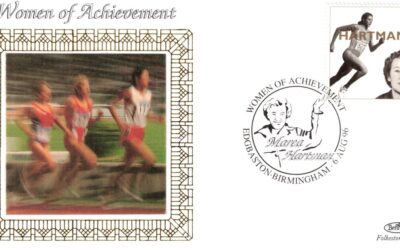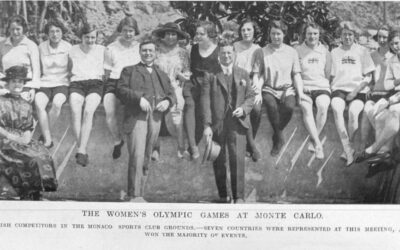Molly Schiot’s book “Game Changers: the unsung heroines of sports history” is dedicated to “all the women who were forever told ‘no’“. It is replete with examples of women who followed their dreams and ambitions in sport despite prejudice, discrimination and controversy.

“Game Changers” focuses mainly on North American women. The impact of racial segregation in the USA on women’s opportunities to take part in sport is still shocking decades later. Black women were doubly disadvantaged as they were excluded from many sports because of their gender and from many sports bodies and clubs because of their race. In her introductory note Schiot highlights the story of Wake-Robin Golf Club, the longest established African-American women’s golf club in the United States. The women who set it up in 1937 initially had nowhere to play because public golf courses were segregated (for white people) and the black, male golf club their husbands belonged to would not admit them. They campaigned to secure the construction of a golf course where African-American golfers could play. This happened in 1939. Later they joined up with other minority clubs to force the Professional Golfers Association to drop its “whites only” rule, finally succeeding in 1961.
Schiot poses the question how can we make these stories known? The “colossal lack of attention” paid to women’s sport in the present extends backwards to the past too. Even women who were feted by their contemporaries have now faded from our collective memories, their sporting triumphs apparently erased, or relegated to footnotes in history.
There are some remarkable, moving and exciting stories in these pages about women who deserve to be better known and celebrated for their achievements. Many of them faced hostility and harassment from men who did not want women to be admitted to what they saw as their sport. Taunts along the line of “go back to the kitchen and cook me a meal” crop up in several of the accounts. Some women even resorted to disguising themselves as men to take part in competitions that would not admit them.
Schiot frames her book as a personal project. It grew out of her Instagram account @theunsungheroines which she started in 2013. The selection reflects both her personal interest, she writes about the women she did not already know about, and her desire to cover a broad spectrum of sports. The book covers not just sports popular in the USA and Olympic sports, it extends to an eclectic mix, including power boat racing, flying, surfing, motorcyling, bullfighting and skateboarding.
It also features women who made a difference as coaches, journalists, referees, umpires, campaigners and sports administrators. This is important because in order for access to sport to become more equal we need women to be represented more equally in all these fields.
Nottingham Women’s Library
I bought this book because it was on the wish list of the Nottingham Women’s Centre Library. A few years ago I met a woman who had been involved in curating the library and asked if there were any sports books in the catalogue. I was hoping there would be some of interest to me. She told me there weren’t very many at all. Recently the library published a request for sports books. This is what they said:
Women being involved in sport – and generally being active – can help defy gender stereotypes, build confidence and teach values of teamwork, self-reliance and resilience, all great drivers for gender equality. Books are a fantastic way of telling of inspiring sporting achievements, of adventure, of relating accounts of personal hardships and struggles overcome through the medium of sport and being active. Despite this, books written by women in these areas are underrepresented.
With the above in mind, we decided we wanted to try and raise the profile of these books. However, in February 2019, when we came to do a monthly focus on them, we found we had only 4 books that fitted these areas. As we are a donation library and do not have the funds to buy our own books, we decided to put a call out for donations.
The library’s request was picked up on Twitter and since this call went out, several authors have donated books to the library and other women have donated books from their own collections. The library now has over 50 books on women’s sport written by women and the collection is still growing. I decided to purchase a book from their wish list and chose Molly Schiot’s book because I wanted to read it myself. I’m looking forward to visiting the library when I go to donate the book.
My unsung heroines
Three of Schiot’s “game changers” are women I’ve written about Kathrine Switzer, and ‘Babe’ Didrikson and Wilma Rudolph who appear in the book Nike is a Goddess.
Of course, reading “Game Changers” has got me thinking about who I would include if I wrote a book like this myself. I’d include women that I’ve already written about on my blog: marathon pioneer Joyce Smith, and the first woman to run a mile in under 5 minutes Diane Leather.
I’d also want to write about Alice Milliat, the driving force behind the Women’s World Games in the 1920s and 1930s, Dale Greig, marathon world record holder, and ultrarunner Eleanor Robinson. I hope to publish articles about all three of them on this blog.
As soon as I start to uncover one story of a pioneer of women’s sport, I find another I want to know more about. That’s what I really enjoy about research. I know I’d be able to fill a book with the stories of British and European women in sport.
Who would your game changers be?
…………………………………………….
Game Changers, the Unsung Heroines of Sports History, Molly Schiot, Simon & Schuster Paperbacks, New York, 2016.
Notes – Research by Women in Sport
The lack of attention paid to women’s sport
Last October I attended the Empower 2018 conference organised by the charity Women in Sport. At the conference they published a research report “Where are all the women? Shining a light on the visibility of women’s sport in the media“. This reported on an EU-funded project looking at the visibility of women’s sport in the media in five European countries. It found that women’s sport attracts significant audiences globally and there is strong interest in major events, with both women and men interested in watching. Despite this men’s sports’ reporting consistently dominates the media. In the UK it accounts for over 80% of the total sports coverage compared to 4%-10% for women’s sport (the rest is mixed sports).




What a great post and I love the initiative by your library! I’m definitely going to try and find this book. I’m familiar with Bobbi Gibb and Kathrine Switzer but I’d love to find out more about unsung heroines in other disciplines besides running. Now I’m off to follow @theunsungheroines on Instagram!
Thank you Lauren. There are lots more stories out there to uncover. In the UK, the cyclist Beryl Burton is worth finding out about. Maxine Peake wrote a play about her which I was lucky to get to see at Nottingham Playhouse. Katie